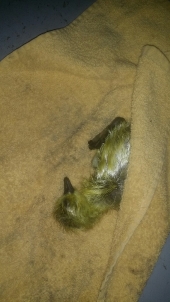Some thoughts: How much better the situation of this poor goat would be, if only we would be living in the late 1800s. Then, there would be a homeopathic doctor not too far from where you live, he would treat her and she would recover. The End. (A happy one). But nowadays, what an uphill battle to even make people consider homeopathy... You are obviously a caring owner. But... would you be willing to travel back in time? Like the owners of this paralyzed dog? This is like 6 min and the spoiler is: The dog makes a full recovery.
There are quite a few homeopathic meds that can cure paralysis, but the challenge is to figure out which one is needed for each patient. The homeopathic consultation (called taking the case) looks at every little detail in order to get the clues pointing to what would work. The mental picture is very important, but animals don't talk... Still, we do know what's generally going on in their lives. This lucky dog was apparently eaten up from the inside by jealousy, so this crucial info lead to choosing the correct Rxs.
About your goat and the worming... I know that ol' piperazine was doing neurological damage in chickens, but doing a search on Cydectin, I see that it's actually moxidectin- a benign old friend. And can we rule out injury? The other 4 goats and the donkey started picking on her AFTER she became paralyzed, not before, right?
So, to give some examples: the jealous dog cured by Lachesis, a chicken with paralyzed legs (by Marek's) was cured by Gelsemium (the clue here was drowsiness, with eyes heavy lidded), Plumbum Met can work when there is also emaciation, Causticum has paralysis from exposure to cold, Arnica works on paralysis after injury. This guessing game is a quagmire, but the goat is SO YOUNG...
Tentative solutions (none of them easy):
1. A local naturopath would have training in homeopathy and dozens, maybe even hundreds of remedies at hand. Because it's possible a succession of Rxs would have to be tried. A naturopath would be aware of the benefits of raw milk (*wink). Lol, who in their right mind is not courting local food producers nowadays?
2. Acupuncture- many vets are teaching themselves acupuncture these days, they're doing it all the time on dogs and cats. No kidding, I'd just download myself some veterinary acupuncture books and give it a try. Correction- I'd try acupressure where the needles are supposed to go. Hmm, maybe your vet could network with colleagues a bit, a few phone calls... Then he could teach you the relevant acupressure points.





